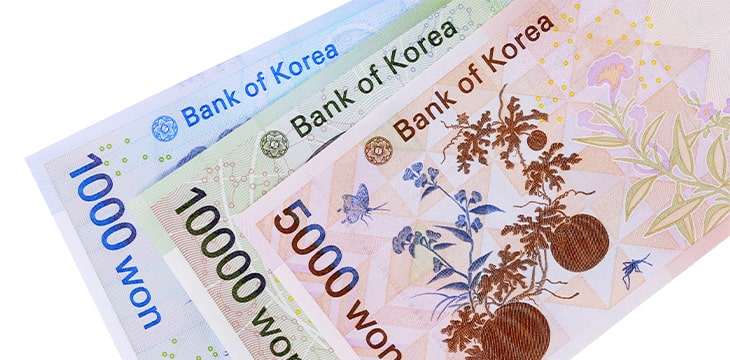|
Getting your Trinity Audio player ready...
|
The Bank of Korea (BOK) has voiced plans to lift the ban on issuing new digital assets via initial coins offerings (ICOs). The BOK intends to make comprehensive ICO regulations part of the country’s upcoming DABA regulations once the ban is lifted.
The central bank stated this intention in a domestic paper it published reviewing the European Union’s (EU) Markets in Crypto Assets Act (MiCA). The BOK said in its commentary that South Korea’s ICO ban has not been effective so far.
Digital assets firms in South Korea have been circumventing the ban by carrying out ICO in other countries and returning to sell the tokens in the local market. The ban has also depleted opportunities to develop South Korea’s digital assets industry and promote the adoption of blockchain technology.
Based on this, the review recommends that South Korea’s Digital Assets Basic Act (DABA), which is in the works for enactment in 2023, should institutionalize ICOs as obtainable in the EU. The review also proposed a more balanced regulations approach that will spell out the BOK’s role in overseeing digital assets.
“When the on Digital Assets Framework Act is enacted in the future, it is necessary to institutionally allow domestic crypto-asset ICOs…When enacting the Framework Act on Digital Assets, it is necessary to ensure that the role and responsibilities of the Bank of Korea, the monetary authority, for stablecoins, etc. are specified,” according to the central bank.
The BOK cited the Terra-LUNA collapse as one of the reasons why it’s calling for South Korea to adopt an EU-level regulatory framework for stablecoins and digital assets that are traded for profit to protect investors.
South Korea edging towards digital assets industry deregulation
South Korea’s ban on ICO was instituted in 2017 at the height of the ICO mania, which saw many investors lose funds to scams. Since then, the country has considered lifting the ban on several occasions—the most recent in 2021 when the Financial Services Commission (FSC) vice chair, Do Gyu-sang, proposed the ICO ban to give way to regulations.
The calls did not receive serious consideration until work began on the DABA regulations, which the newly elected president is determined to use in deregulating the South Korean digital assets market and industry. However, the DABA law is still some way off as the government plans to begin enforcing it in 2024.
Watch: The BSV Global Blockchain Convention panel, The Future of Digital Asset Exchanges & Investment
https://youtu.be/AsD1na3VgxE

 02-27-2026
02-27-2026 




